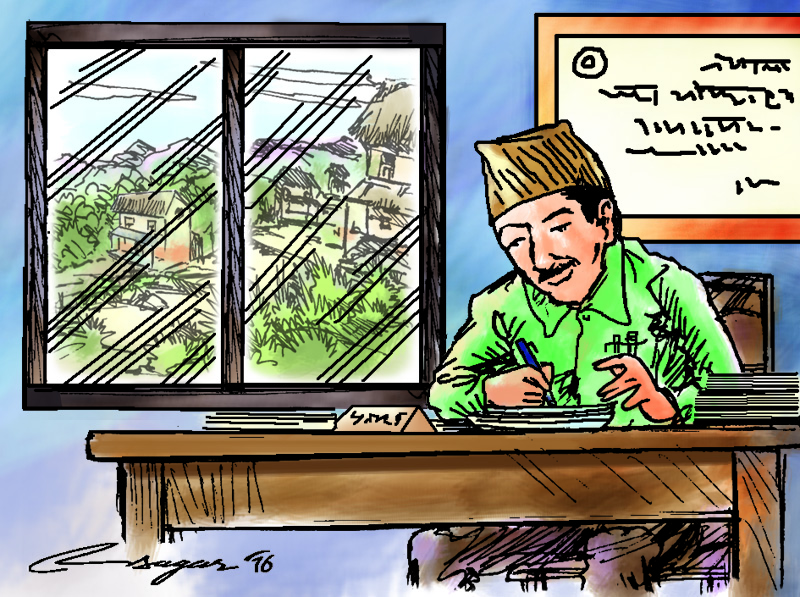Identity-based federalism: Decentralisation is a better option
Sharing sovereignty, providing autonomy to a complex, costly and inequality raising, national integration-threatening system of identity-based federalism is an unbearable risk for Nepal
Identity-based politics is turning out to be a reality for South Asia. Nepal is at the juncture to accept it or leap forward to continue the famed existence of past. A proposal of amendment to the present constitution for fresh demarcation of two provinces out of seven provinces for implementation of federalism, issues of naturalized citizenship and representation has jeopardized the country with a series of protests. A fully operationalised decentralization can be more effective than identity-based federalism for inclusive democracy, development,equality and to fulfill the state’s responsibility of efficient and effective service delivery to the citizens.
King Prithvinarayan Shah commenced building the present territory of Nepal since 1768 which always remained sovereign and independent. Integration of small principalities into a federal structure is an ideal condition for federalism. Most of the South Asian countries were British colonies till mid-twentieth century. Once these countries got independence, they adopted an easy way of identity based federal structure to retain and consolidate people of numerous small states with cultural, lingual, religious and ethnic diversities in a unit. Nepal has crossed that stage and successfully consolidated as a strong bonded unified country.
Nepal has not the conditions of USA and Switzerland where the federal structure was formed on already functioning state entities with a long history of separate political and administrative existence. Nepal’s adjoining Indian states Uttar Pradesh, Bihar and West Bengal have an approximate population of 204, 100, 92 millions respectively whereas Nepal’s about 29 million population can reside as an undivided single unit.
Abolishing unitary structure and totalitarian rule has erupted in huge unrest and weakened cohesion among different communities and political parties that causes diminishing law and order situation and integrity of Nepal.
Demands of separation of Madhesh from Nepal demonstrated by a group before the British embassy in Kathmandu, threat for separation of Madhesh by senior leaders, finding outlet to India via small territories in the Madhesh for the provinces of hills are some of the examples. It appears that foreign political interests have played a role in these changes in Nepal. Examples of political unrest in Iraq, Syria, Afghanistan and annexation of Crimea are some of the relevant examples for Nepal to be aware of. Federalism is a division of sovereignty among the different levels of government. Federalism is a complex system having features of shared and self-rule. It is relatively a costly system of governance since every unit has a structure of governance.
Federalism itself is not a guarantee of political, economic, social, regional and ethnic equality as evident with the growing economic inequality, ethnic differences and regional disparities prevalent in India.
Federalism does not always assure progress and development, such as Ethiopia, a poor country, is a federal state. Abundant of geographical area like in Canada allows for foreign settlers for multiculturism and ethnic balance, which is not possible in Nepal due to scarcity of land and inflow of outsiders and internal migration in Nepal.
Balancing class and viability is more important than balancing identity and viability issues now in Nepal. Identity and requirements of Dalits, minorities, seventeen percent of Chhetris, thirteen percent of Brahmins, and others are not specifically addressed in this constitution. Moving further to implement identity-based federalism may create violence and unending conflict in the country. Refraining from it would be a wiser decision.
A country needs both centralization and decentralization. Decentralization is a process of transferring the authority, responsibility, power, resources and accountability from central level of government to the local or sub-national level for service delivery and other functions.
It promotes national unity and democratization through focusing on the smallest unit of democracy, i.e. an individual. Decentralization of local governance is a parameter to judge the level of democracy in a country.
The Local Self-Governance Act of 1999 and the relating regulations are prominent. Devolution of power is a basic criterion. Other improvements are formations of commissions for Dalit, Janajatis and other inclusion related institutions. Establishing democratic and transparent practices, public accountability, participatory indecision-making, encouraging private sector to participate in local governance are other improvements.
A periodically elected fully decentralized local governance system can be more effective for fulfilling the people’s aspirations as compared to identity-based federalism in Nepal. Sharing sovereignty, providing autonomy to a complex, costly and inequality raising, national integration-threatening system of identity-based federalism is an unbearable risk for Nepal.
The writer is Senior Agriculture Extension Officer in the Ministry of Agriculture Development






